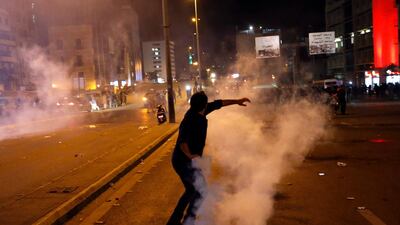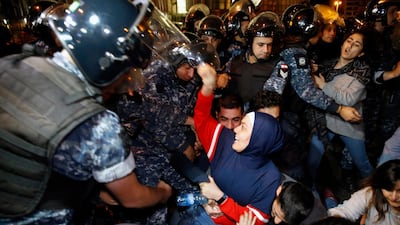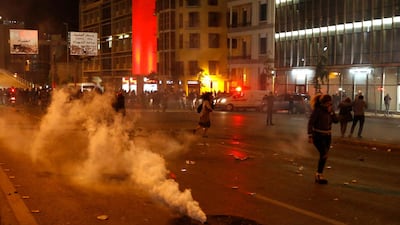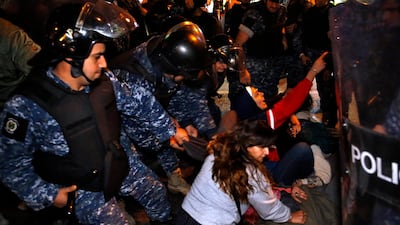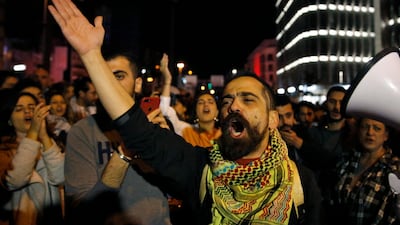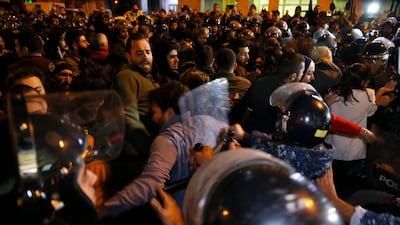Riot police fired tear gas at demonstrators on one of Beirut's main roads on Tuesday evening as they protested against the interim government naming a wealthy businessman to be Lebanon's next prime minister.
Political leaders indicated earlier that they were ready to back Samir Khatib, vice president of a prominent engineering company, for the position after Saad Hariri resigned on October 29.
Hundreds of protesters gathered in different areas of the country to oppose Mr Khatib's nomination.
Riot police pushed them back, firing tear gas at protesters in a central area of the capital.
And a young man fell off a bridge as he was running away from police in the eastern region of Bekaa Valley.
“Samir Khatib’s name is problematic because he has business ties to members of the Lebanese political establishment, which makes people think the new government will be like the ones before and dominated by political parties they have rejected,” said Naji Abou Khalil of the National Bloc, a party not represented in Parliament.
“The protests had been losing steam over the past few days but clearly Samir Khatib’s name has angered people enough for them to take to the streets again.”
Mr Abou Khalil was one of several hundred people who gathered late on Tuesday on an important Beirut highway known as The Ring.
Protesters blocked the motorway with soil and cement, calling for Mr Khatib to “leave” and chanting slogans such as “revolution”.
Earlier that evening, a small number gathered outside Mr Khatib’s apartment in the capital to protest his possible nomination.
Several protesters were beaten with batons, a witness told The National.
Activist Sara Assaf believed that appointing Mr Khatib as prime minister would not end corruption and mismanagement among the political elite, which has been the key focus of protests that began on October 17.
“If political parties have their say in the next government, there will be the same level of corruption and incompetence," Ms Assaf said.
"It would mean that all we have done until now amounts to nothing."
On Wednesday morning, the situation remained tense in the Bekaa region.
The army cleared a road blocked with rubbish bins and rocks by late morning near the town of Zahle, but protesters refused to leave a motorway a few kilometres away until activists arrested by the military were released.
The protests have united ordinary people across sectarian divides and were spurred by Lebanon’s worst economic and financial crisis since the end of the civil war in 1990.
Over the past few days, local media has reported cases of suicide linked to unemployment and debt.
In mid-November, several Lebanese parties backed former finance minister and billionaire businessman Mohammad Safadi for the role as prime minister, but he quickly pulled out after the protests picked up again.
